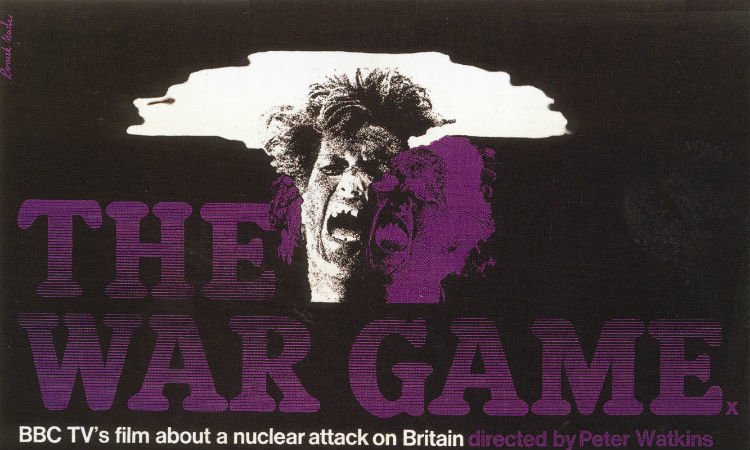With the specter of nuclear warfare firmly in our cultural rear-view mirror, it might be tempting to view 1965’s ‘The War Game’ as a quaint reminder of a long-lost horrible chapter in civilization’s history. After all, several generations have grown up in America (and most major countries) without that near-constant threat; air raid drills and “Duck and Cover” are little more than stories told by our parents or grandparents, usually with a chuckle at how absurd the exercises seem in today’s world.
It’s tempting to try to compare ‘The War Game’ with “Duck and Cover.” The latter has become something of a laughingstock, cultural shorthand for well-intentioned but useless propaganda designed less to inform the public than to pacify them (whether this reputation is deserved is up for debate; my point is simply that the film is perceived that way today). ‘The War Game’ might be best described as “speculative documentary.” Even though (spoiler alert!) England has never been the victim of a nuclear attack, ‘The War Game’ tells a chilling story of a hypothetical nuclear attack against Rochester, Kent, a city on England’s southeast coast, while also mixing in then-contemporary interviews with average British citizens and experts on nuclear arms.

Created for the BBC in 1965, ‘The War Games’ was banned from broadcast because of its frank and often disturbing depictions of the effects of nuclear war. Thanks to a loophole in British decency law, it saw distribution in movie theaters and was widely lauded for its realism; it won the Academy Award for Best Documentary in 1966, despite not being based on any real event. Think about that – this movie was so compelling and its subject matter so important that its fake story was considered better than four other real stories.
In terms of entertainment, it’s hard to “enjoy” in any traditional sense a story of widespread death and devastation. Instead, ‘The War Game’ grabs its audience with what at the time was a very real threat and takes us on a journey to explore the vast horrors of nuclear warfare. It’s an extremely blunt subject, but the narrative develops slowly and allows the stark truths of nuclear warfare to sink in rather than bludgeoning the viewer all at once. I can’t speak intelligently about the exact science of a nuclear event, but both the immediate impact and the lingering effects of fallout seem to be authentic and well-researched, which makes the whole thing that much more horrifying. The scenes exploring the breakdown of polite society in the months after the attack are just as compelling as the descriptions of the initial nuclear event. This movie isn’t “science fiction;” it’s more appropriate to call it “science probably.”

Surprisingly, there is a plot-driven narrative in the film. The main story of the bombing of Kent introduces characters, albeit briefly, and takes us logically through society’s progressive collapse until we see British soldiers reluctantly but dutifully executing citizens for stealing food. Unfortunately, the newsreel-style presentation means that more of the story is told through narration rather than shown. The movie is in black and white, which could be either an artistic decision or a technical limitation, but the lack of color doesn’t seem to detract from the experience in any way. The special effects are either makeup to (convincingly) simulate the physical scarring from radiation injuries or camera effects to (unconvincingly) simulate the glow of a nuclear blast. Still, the actors involved play their parts very well and the power of the message is enough to see us through some of the less artful effects.
‘The War Game’ is more important than it is purely enjoyable. There’s a level of fear throughout the contemporary interviews that chillingly illustrates the tension of the Cold War, and the central narrative seems geared to remind the audience that the average citizen was entirely powerless against the force of such awesome and destructive weapons. Even several generations removed from the threat of nuclear war, the hypothetical scenes of destruction and devastation carry plenty of weight.

